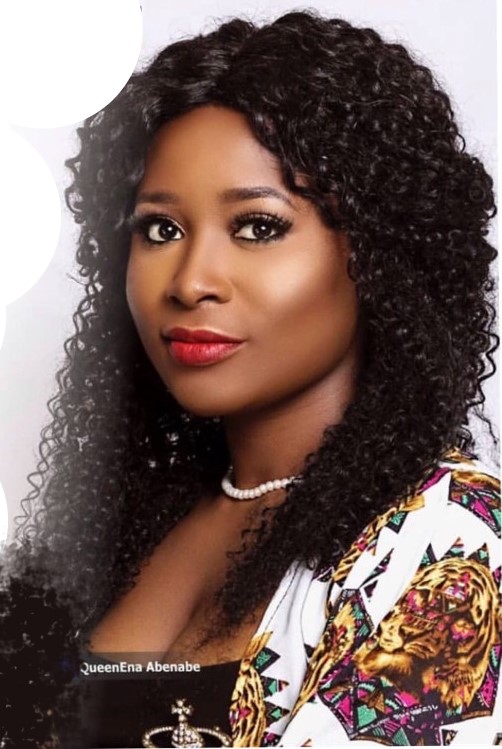Stroke at 23? That life-changing experience seemed reserved for the aged, if we go by the Centers for Disease Control and Prevention’s submission that the older a person is, the more likely they are to have a stroke.
Indeed, according to the CDC, the chance of having a stroke about doubles every 10 years after age 55. The health agency however warns that although stroke is common among older adults, many people younger than 65 years also have strokes — as was experienced by a Nigerian lawyer and author Emonena Abenabe, eight years ago when she was a mere 23-year-old. CHRISTIANA ALABI-AKANDE REPORTS
Stroke, according to the CDC, is sometimes called ‘brain attack.’ It occurs when something blocks blood supply to a part of the brain or when a blood vessel in the brain bursts. In either case, parts of the brain become damaged or die.
The CDC describes stroke as a serious medical condition that requires emergency care, as it can cause lasting brain damage, long-term disability, or even death.
It is pertinent to note that the brain controls human movements, stores memories, and is the source of our thoughts, emotions, and language. In fact, it controls many functions of the body, including breathing and digestion. As such, the brain needs oxygen to work properly.
To make the brain work properly, your arteries deliver oxygen-rich blood to all parts of your brain. If something then happens to block the flow of blood, the brain cells start to die within minutes, because they can’t get oxygen. This causes a stroke according to CDC.
Ena’s story
World Stroke Day is marked annually on October 29. Ahead of the day, a stroke survivor, Emonena Abenabe, a.k.a, Ena, narrates her experience with stroke on Morning Cross Fire with Kofi Bartels on Nigeria Info FM 99.3
Ena, who is a lawyer, health advocate and founder of My Ability and Disability Foundation, narrated how she came down with a stroke at age 23, just when she was about going for a celebrity basketball on November 27, 2015.
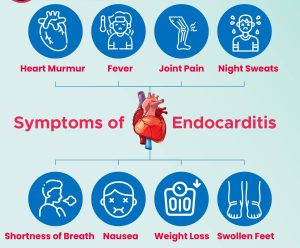 “I had an infection in my heart called endocarditis (most often from a bacterial infection, inflames the lining of the heart valves and chambers. According to Cleveland clinic, with quick and aggressive treatment, many people survive; but without treatment, it can be fatal).
“I had an infection in my heart called endocarditis (most often from a bacterial infection, inflames the lining of the heart valves and chambers. According to Cleveland clinic, with quick and aggressive treatment, many people survive; but without treatment, it can be fatal).
“How that infection got to my heart, I do not know; but it ruptured a valve in my heart and the next thing was a stroke because I had a blood clot going to my brain.
we went to about five hospitals before we got one that Accepted me
“My life changed in one minute. On that fateful night, I was going for a celebrity basketball because I was a bubbling girl and what happened? I just fell down and I couldn’t stand again. I was taken to a hospital, and there, they didn’t know what was wrong with me. How can a hospital not know that a patient has stroke and how can a hospital not have a first aid response to stroke?
“Because they didn’t know what was wrong with me, I was kept in a room. My family took me away from there the next day and we went to about five hospitals before we got one that received me.
“For some of the hospitals, they didn’t have bed, while some didn’t take me because they didn’t want to add another death to their list or record. Then we got to a hospital that accepted and treated me, though I was unconscious for three days and woke up to realize that I had a stroke. I couldn’t walk, talk or do anything. In fact, my memory was messed up, as I could not remember anything. Meanwhile, before the stroke, I was healthy and I did a lot of physical activities to keep fit.”
Eight years after the encounter, Ena said she is now 90 percent okay, as she can drive and do a lot of things by herself.
I was unconscious for three days and woke up to realize that I had a stroke
Public Health Specialist weighs in
A Public Health Specialist, Dr. Japhet Olugbogi, who was also on the programme said that stroke is otherwise known as Cerebrovascular Accident (CVA) that occurs as a result of shortage of blood supply to the brain or when the blood supply to the brain is cut-off.
He explains that a stroke can also occur when a vessel ruptures in the brain and prevents blood supply to the brain.
According to him, there are two types of strokes, which are: Ischemic and Hemorrhagic strokes.
The expert described ischemic stroke as a condition that cuts off blood supply to the brain, while the hemorrhagic is the type that involves bursting of vein or artery that supplies blood to the brain.
He revealed that in Nigeria, ischemic stroke is the commonest type; adding that stroke has become a very common ailment unlike in the past when it is called a disease of the old or elderly.
Dr. Olugboji explains, “The major risk factors of stroke in this part of the world is hypertension. When the blood pressure rises too much, a lot of people may come down with stroke.
“Also, nine years ago, young people were not coming down with hypertension or stroke. Ordinarily, we didn’t even expect anyone less than 40 years to come down with hypertension or stroke at all and this will inform the reason why, as a young person then, if you walk into a hospital, they probably wouldn’t check your blood pressure.
Eight years after the encounter, I am now 90% okay, I can drive and do a lot of things by myself -EnA
“I am sure they didn’t suspect stroke in Ena because of these reasons, not to say that they should have known what was wrong because we are trained to be able to diagnose, treat and prevent illnesses like that.
“She was quite young and no one would have thought that a young girl of 23 would have hypertension or a stroke; but things are evolving and medical field is also evolving.”
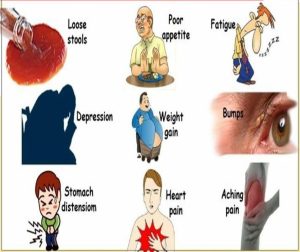
How high cholesterol affects you
The public health expert said that, apart from hypertension, there could be high cholesterol, warning that high cholesterol level in the body can form some form of blockage in the vessels leading to the brain, which can also cause ischemic stroke.
“We also have diabetes, renal problems, too much alcohol and smoking. In fact, smokers are linked with a high level of cholesterol, and all of these can come back to form a lot of debris that will block the vessels.
“There are also some viral infections, though, rarely, but they can also cause a stroke. In our society, the major cause of stroke is hypertension.
“Additionally, someone who has a family history of hypertension or stroke may also be at risk of coming down with same episode,” he explained.
Asked if salt is a major contributor to hypertension, Dr. Japhet explained that salt can contribute to hypertension but clarified that it is not a major contributor, though, it has some level of effects on blood pressure.
He warned, “What you should worry about is fat, cholesterol, more than salt.”
On why there are incidents of stubborn high blood pressure issues, especially among young people today, Olugboji said, “In the past, we could say that the number of young people who were coming down with high blood pressure wasn’t as alarming as it is now. In fact, the number of people coming down with hypertension has almost doubled in Nigeria.
the number of people coming down with hypertension has almost doubled in Nigeria -Physician
“We must note that so many things have evolved — our way of life, diet, habits, etc., have all evolved and then, physical inactivity, which has become a global public health concern.
“We have a lot of people who are not doing so much anymore, who are not moving around so much anymore. We drive, ride on bike and tricycle, among other forms of transportation all the time. People no longer trek and the level of physical activities have waned.
“Also, we have a lot of young people who consume alcoholic beverages and in a lot of mixtures. These items contribute to developing bad kidneys and a bad kidney is a pre-requisite for hypertension.
“It is a chain reaction, if we have more people having hypertension, their children may also come down with hypertension; so, we have a generational cycle that may be increasing the number of people coming down with hypertension.”
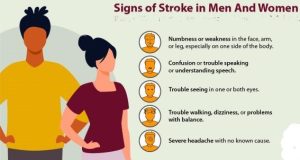
Warning signs/symptoms of stroke you need to know
Signs/symptoms of stroke according to the public health specialist include:
- It may start from the face
- Mouth shifting to one side, or deviating to one side
- Weakness of the facial muscles
- Inability to chew and speak
- Weakness of the upper part of the body, particularly the arm
- Weakness of the leg
These weaknesses, he said, are mostly found on one side of the body and may be sudden or gradual.
He advised individuals having such signs to urgently seek medical attention.
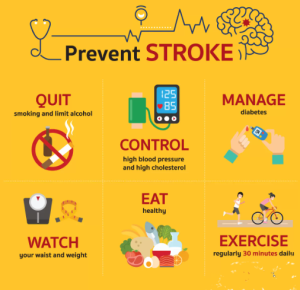
How to prevent stroke
To prevent stroke, Dr. Japhet advised the public to change their lifestyle, diet and stop consuming things that they do not know what constitutes them, such as herbal concoctions, some sachet alcoholic drinks, alcoholic beverages designed to mimic certain alcoholic beverages, etc.
“We should exercise more and limit physical inactivity,” he stressed.
The World Stroke Organization also says that one in four [persons] will have a stroke in their lifetime, but noted that 90 percent of strokes could be prevented by action and a handful of manageable risk factors, including high blood pressure, atrial fibrillation, that is, irregular heartbeat; smoking, diet and exercise.

